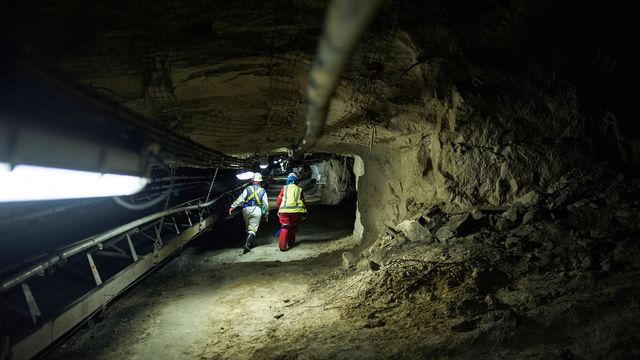As a key factor in community, national and sometimes regional development, the economic benefits of working in mines often benefit women and other disadvantaged groups and still maintain the community economy. The mining sector has indeed become an engine of economic development, enabling beneficiary countries to attract more investment, especially since the early 2000s. In many African countries, this has enabled the recovery of the budget, Better management and use of tax revenues from this sector, but also the development of development strategies that put mines at the center of the shift towards the progressive industrialization of African countries. In order to do this better, legal and regulatory reforms in the mining sector, particularly in Uganda, have allowed investors to ensure that environmental protection provisions are taken into account. Very often, countries go through five stages of transformation of their mineral wealth as factors of sustainable development:
- Legislation, especially fiscal and investment attraction provisions;
- A clear and detailed regulatory framework;
- The transparent and efficient collection of taxes and charges;
- The rational disposition and management of budgetary revenues by public authorities;
- Community and regional social, economic and environmental development due to the value chain of the mining sector.
These are the steps that would have taken countries such as Tanzania Madagascar and Uganda since the late 1990s. In the first country, for example, the development of the mining sector made it possible to increase the amount of foreign direct investment from $ 10 million to $ 250 million between 1999 and 2008. This development has led the Tanzanian government to participate in the Majority of projects in the sector since 2010. In Madagascar, an average of 12,000 jobs are created annually at the national level in the sector since the mining reforms. Uganda also has $ 32 million invested by the African Development Bank and the Nordic Development Fund to make the sector viable between 2004 and 2011. Over the same period, about $ 329 million Dollars invested, and the income of artisanal miners rose from $ 4.81 to $ 7.50 per day, an increase of 60%. On the social level too, between 2005 and 2013, the Ugandan government received 590 health and safety plans issued by minors.
Which prospects?


The World Bank has also invested more than $ 20 million in the Republic of Guinea and $ 30 million in Cameroon since 2014. In December 2012 it also donated $ 47 million . Why ? Because the environment turns out to be more profitable than it would appear. While many countries continue to seek assistance in the early stages of their reform of the mining sector (in developing policies and legislation to increase investment), it is because they are beginning to benefit from Economic benefits to local communities and improve governance at the national and subnational levels. Today the actions of the political authorities in the sector is: Strengthening foundations and community development agreements in promoting sustainable development around mining communities; The increase in the volume of orders placed with local companies by the mining industries; Strengthening the capacity of local governments and civil society to manage and control the increased revenues generated by mining activity and its environmental and social dimensions; Designing and improving the efficiency of mining tax regimes; Encouraging collaboration between the public sector, the private sector, communities and civil society organizations to improve the living conditions of small-scale miners and the fight against armed conflict; The use of private investment in infrastructure associated with the exploitation of natural resources for the benefit of the population and the diversification of the economy. From a professional point of view, mining work usually seeks to work with geological and mineralogical engineers and technologists, but not. Outside of the traditional administrative posts, the miners also recruit many maintenance operators of machines, mechanics and drillers.
As a key sector for stronger growth in many African States, the sector is now a gateway to a more efficient and better-managed economic policy through the strengthening of its institutional framework. It also fosters an attractive business environment, although there is still a need for more structuring investments, particularly in road infrastructure and the energy sector.If you do not yet know in which area to look for a job in Africa, think about the mines because it is as promising as it needs to grow to convince. If you do not know where to look, think about co-opting online!

